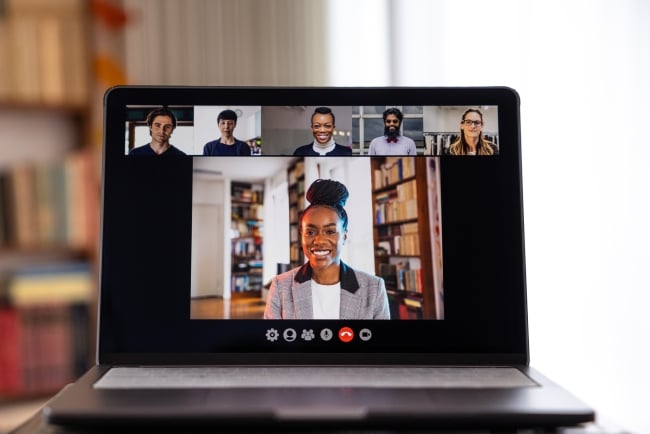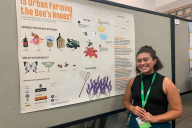You have /5 articles left.
Sign up for a free account or log in.

Advisers can connect with colleagues at other institutions to learn more about best practices and new tools to improve their work.
LeoPatrizi/E+/Getty Images
Advising is a key element of a college student’s journey through the institution as they enroll in courses, identify their major and apply for graduation. However, only half (55 percent) of students say they’ve been advised on required coursework for graduation and six percent of respondents have never met with an academic adviser, according to 2023 Student Voice data from Inside Higher Ed and College Pulse.
To enhance advising practices, the University of Pittsburgh created an annual summit that provides ideas and practical tools, as well as peer collaboration to address challenges in advising. The Mentoring and Advising Summit provides a free, one-day experience for any campus member looking to enhance their inclusive and wholistic advising skills.
The virtual experience highlights how to better work with students, with an emphasis on at-risk student groups such as first-generation, low-income, transfer, international or underrepresented minority students.
Scaling up: Pitt launched the summit in 2018 as an in-person event to unite the advising community through networking, idea sharing and exploring useful tools for student success, on top of the onboarding and other professional development opportunities available. The first event had around 100 attendees.
During the COVID-19 pandemic, university leadership pivoted to offer the event online, which is when leadership partnered with the Association for Undergraduate Education at Research Universities (UERU) to expand the event beyond Pitt staff.
“Overall, advisers have a lot on their plates, and budgets in higher education are tight,” says April Belback, associate vice provost of student success and advising. “What we know here at Pitt—and nationally with our UERU network—is that if we can provide high-quality professional development at low (or NO) cost, advisers will gladly take advantage of it.”
How it works: The summit is open to all faculty, staff, administrators, graduate students, postdoc or researcher who advise, mentor or coach students. As the event has grown, organizers have focused on making institutions more inclusive and dynamic through their speaker selection and topics.
The one-day format includes three keynote speakers and concurrent sessions, which prioritize:
- Creating a sense of belonging;
- Establishing a culture of care for at-promise students;
- Leveraging technology tools;
- Developing partnerships for transfer success;
- Holistic mentoring and advising approaches; and
- Discourse opportunities for enriching services.
The event is hosted by the Office of the Provost, with sponsorship and support from the UERU and the Advising Success Network, which covers participants’ cost of attendance.
The impact: The first virtual summit in 2021 had 1,000 attendees, and the event has grown to over 2,000 attendees from over 130 institutions at the summit this spring.
Post-event evaluations show attendees find the event well-organized and a way to connect with advisers from a variety of institutions. Other important facets of the opportunity are its accessibility and practical application.
The event also helps energize advisers, a historically demanding job with low-pay, high caseloads and high turnover rates.
“What we’ve found is the summit truly taps into something nationally—and now internationally—that is not only appealing, but necessary,” Belback says. “No other colleges or universities are doing this kind of event and we’ve found it to be both unique and practical, as attendance numbers indicate.”
Seeking stories from campus leaders, faculty members and staff for our Student Success focus. Share here.







.jpeg?itok=aGrC82hx)
